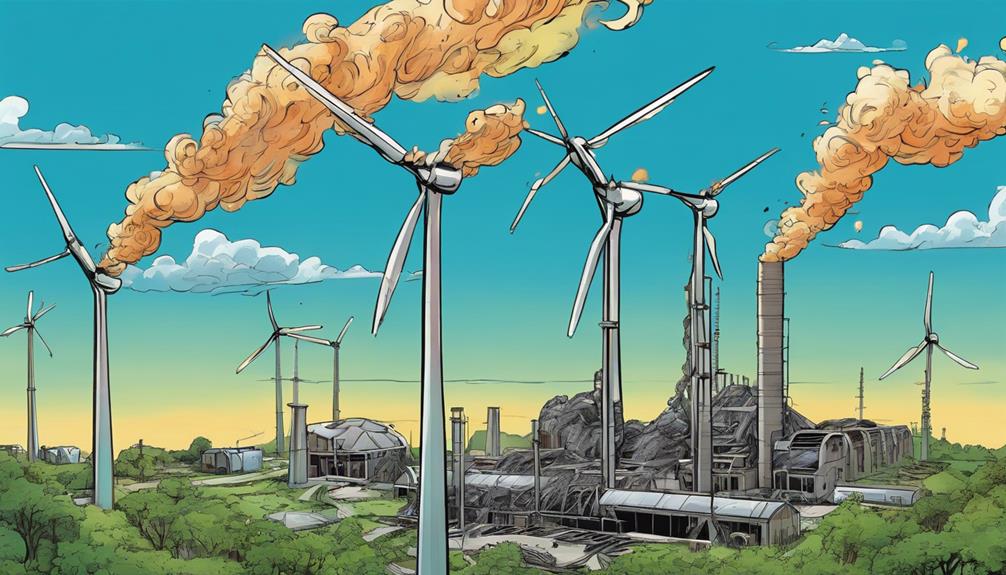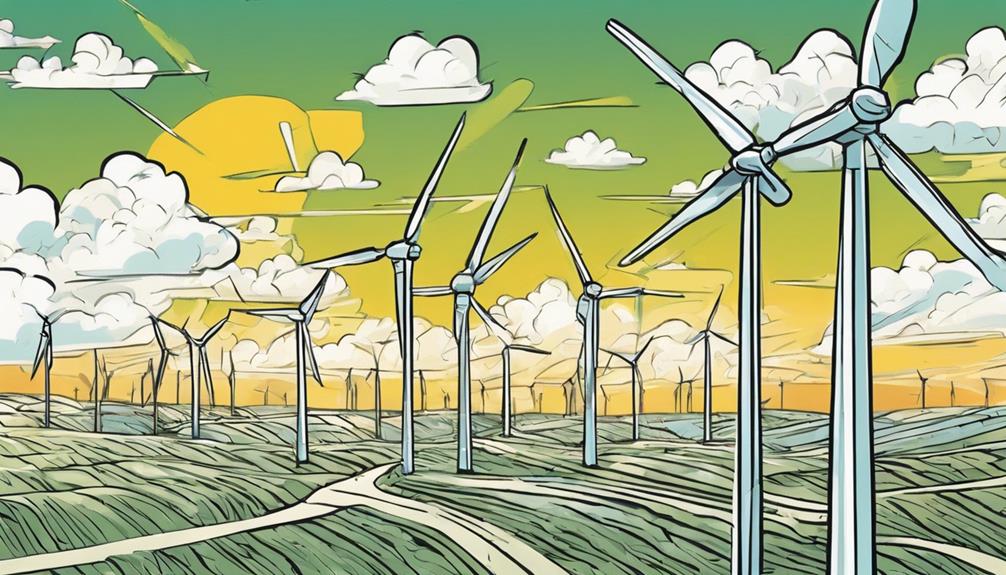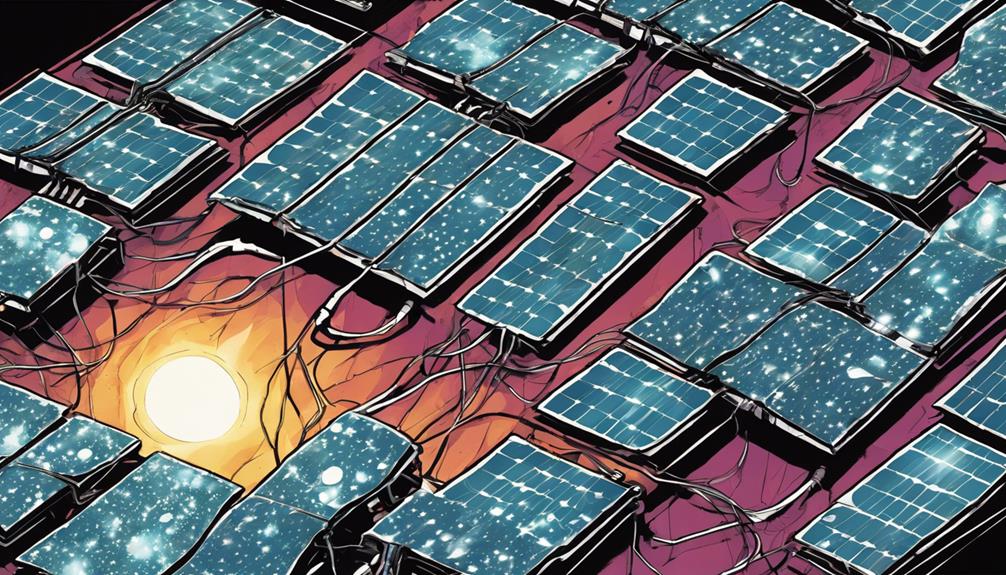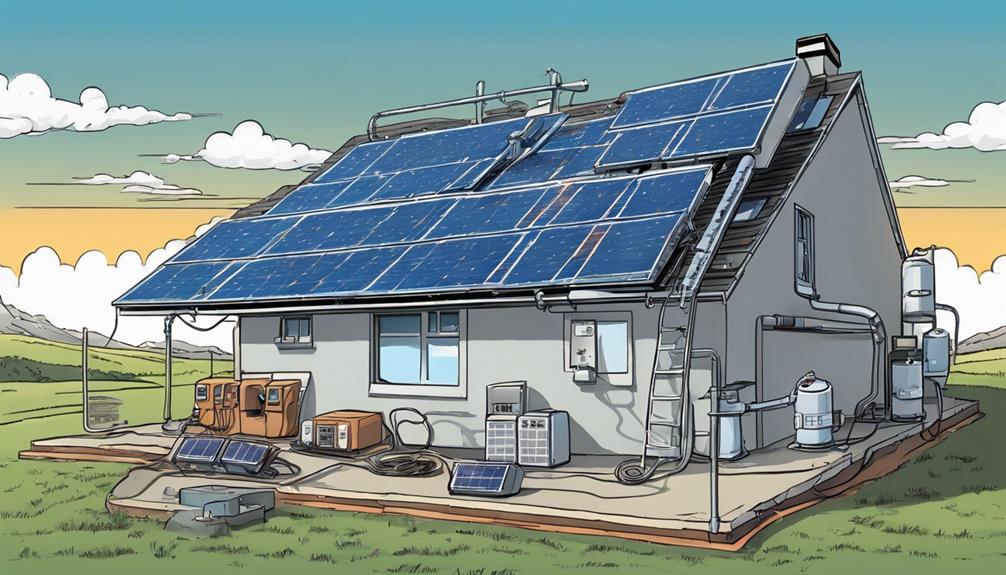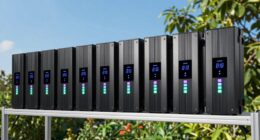As I explore the latest trends in energy production, it's clear that renewable energy is outshining coal in a big way. In Europe, new solar and wind farms are now cheaper than existing coal plants, driven by advances in tech and government policies. Solar power's rising advantages, including energy storage capabilities, make it an increasingly competitive option. When I compare environmental impacts, it's clear that solar energy's minimal ecological footprint is a game-changer. With government support and decreasing costs, a sustainable energy future powered by renewables is not only possible, but likely – and I'm excited to dive deeper into the details.
Key Takeaways
- Renewable energy farms in Europe are now cheaper than existing coal plants, driven by technological advances and government policies.
- Solar power's ability to store energy for later use addresses intermittency concerns, making it a competitive alternative to fossil fuels.
- Solar energy has a minimal ecological footprint, emitting no greenhouse gases, and using minimal water, unlike coal mining and burning.
- Government regulations and incentives promote renewable energy adoption, driving down costs and encouraging a shift to solar energy.
- A sustainable energy future powered by renewables is feasible, with solar and wind power becoming cheaper alternatives to coal, decreasing CO2 emissions.
Decreasing Costs of Renewable Energy
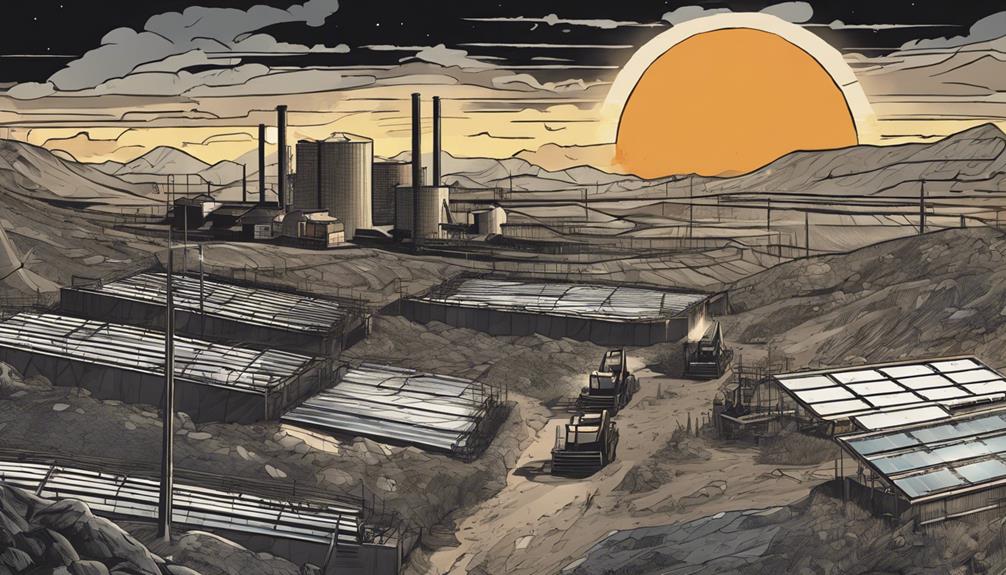
As I explore the world of renewable energy, I'm struck by the staggering decline in the costs of solar and wind power, which are rapidly becoming more economical than traditional coal-fired electricity.
The numbers are compelling: in Europe, building new renewable energy farms is now cheaper than operating existing coal plants. This trend is expected to continue, driven by advances in technology and government policies that incentivize the adoption of clean energy.
The impact on energy markets is significant, with solar and wind power becoming increasingly competitive with fossil fuels. As costs continue to fall, I'm convinced that renewable energy will become the preferred choice for powering our homes and businesses, leading to a more sustainable future.
Solar Power's Rising Advantages
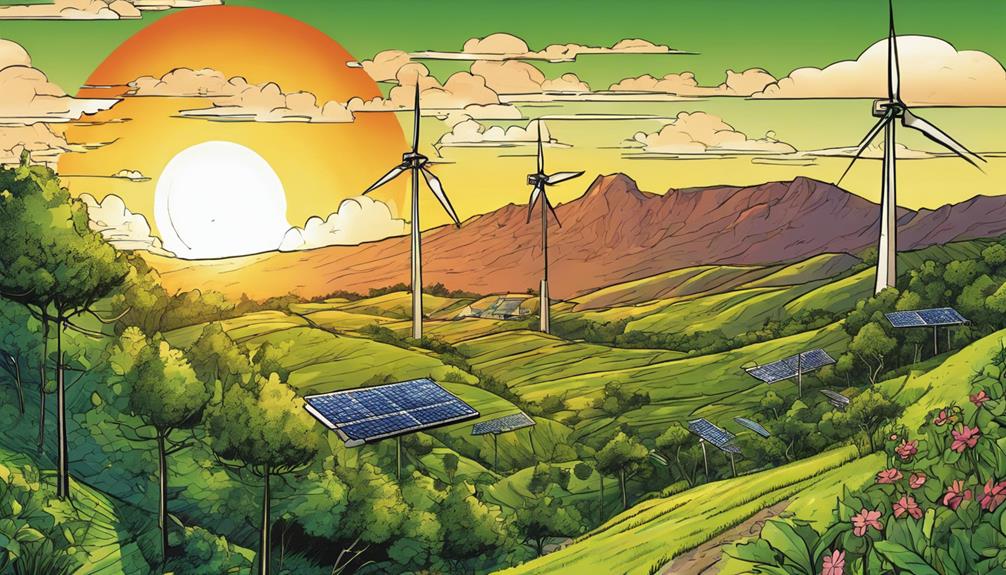
One key advantage of solar power is its ability to store energy for later use, making it a reliable and efficient alternative to coal-fired power plants. This is particularly significant, as it addresses the common concern about solar power's intermittency.
With advancements in energy storage technology, solar power can now provide a stable supply of electricity, even when the sun isn't shining. In addition, concentrated solar power (CSP) systems are more efficient than traditional coal-fired power plants.
As the cost of solar energy continues to decline, it's becoming increasingly clear that solar power is a viable replacement for coal. I'm excited to see how these advantages will drive the shift to a more sustainable energy future.
Environmental Impacts Compared
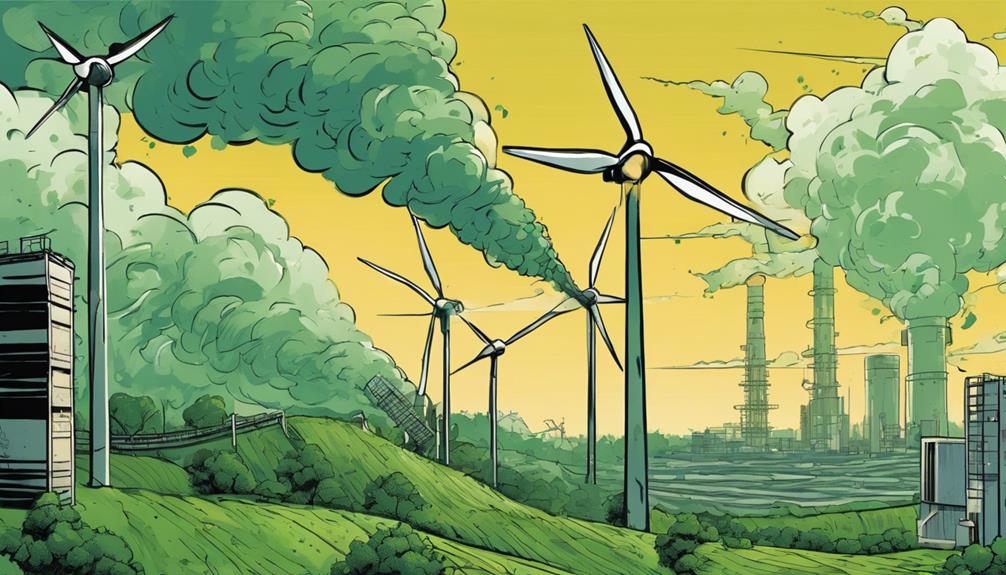
Coal's significant environmental impacts, including air and water pollution, stand in stark contrast to solar energy's minimal ecological footprint, making the shift to renewable energy an essential step towards mitigating climate change.
As I explore further into the comparison, I'm struck by the stark differences between these two energy sources. Here are just a few key takeaways:
- Air pollution: Coal-fired power plants release harmful pollutants like particulate matter, sulfur dioxide, and nitrogen oxides, contributing to respiratory problems and other health issues. Solar energy, on the other hand, produces no emissions.
- Water pollution: Coal mining and processing can contaminate water sources, while solar energy requires minimal water usage.
- Greenhouse gas emissions: Coal-fired power plants are a significant source of CO2 emissions, whereas solar energy generates electricity without emitting any greenhouse gases.
The environmental benefits of solar energy are undeniable, and it's time to make the switch.
Government Support for Renewables

I'm encouraged to see that government regulations and incentives are playing a pivotal role in promoting the adoption of renewable energy technologies, particularly solar power. As I explore the details, it's evident that these policies are making a significant impact.
Incentives are making renewable energy technologies more accessible to consumers, driving down costs and increasing adoption rates. Regulatory support is also vital, providing a framework that encourages the shift from coal to solar energy.
I'm heartened to see governments recognizing the importance of sustainability and taking concrete steps to promote a cleaner, greener future. With continued government support, I'm confident that renewable energy will continue to outshine coal as the preferred source of power.
A Sustainable Energy Future
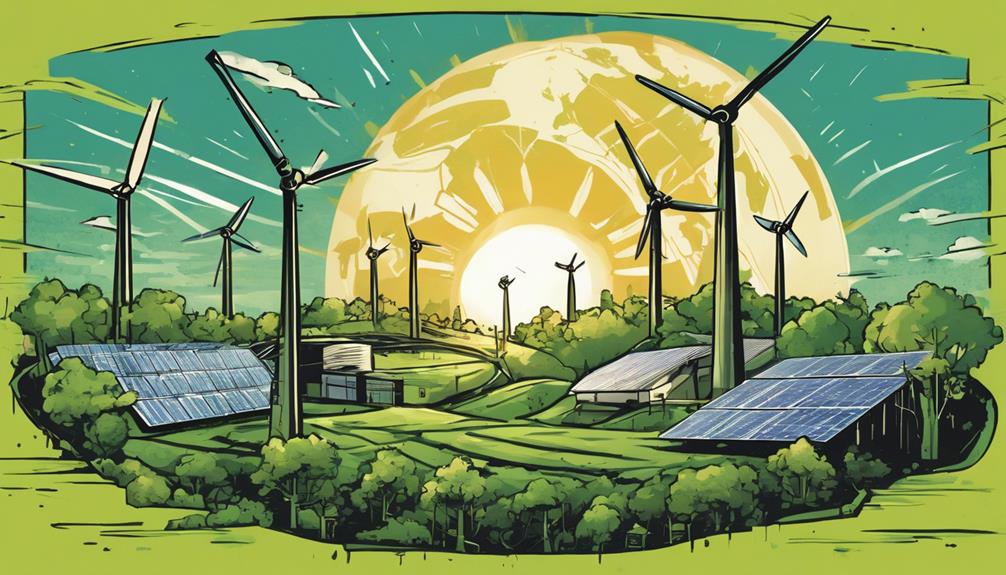
As the world shifts away from fossil fuels, a sustainable energy future powered by solar and wind energy is becoming increasingly feasible. The writing is on the wall – coal is no longer the dominant force it once was. With the cost of solar and wind energy decreasing rapidly, it's only a matter of time before renewables take center stage.
Here are three key reasons why I'm optimistic about our energy future:
- Cheaper alternatives: Solar and wind power are becoming less expensive than coal, making them a more viable option for governments and businesses alike.
- Reduced emissions: Replacing coal with solar and wind energy can notably decrease CO2 emissions, helping to mitigate climate change.
- Sustainable growth: As regulations and incentives continue to drive adoption, a sustainable energy future powered by renewables isn't only possible, but likely.
Frequently Asked Questions
How Does Energy Storage Impact the Reliability of Solar Power?
When it comes to solar power, I think energy storage is a game-changer – it allows us to store excess energy for later use, making solar power a more reliable and consistent source of energy.
Can Renewable Energy Meet the Increasing Global Energy Demand?
"I'm convinced that renewable energy can meet increasing global demand, considering that constructing new renewable energy farms in Europe is now cheaper than operating existing coal plants, and costs continue to decline."
What Role Do Developing Countries Play in the Renewable Energy Transition?
As I explore the renewable energy shift, I realize developing countries are pivotal in driving growth, with many leapfrogging traditional fossil fuels and investing heavily in solar and wind power to fuel their economies.
How Do Renewable Energy Certificates Support the Shift to Sustainability?
"As I gaze into the future, I see a world powered by renewable energy. Renewable energy certificates (RECs) support this shift to sustainability by providing a market-based incentive for companies to invest in clean energy, promoting a greener tomorrow."
What Are the Job Market Implications of a Coal-To-Renewables Transition?
'As I explore the job market implications of a coal-to-renewables evolution, I see a shift towards new skill sets and job opportunities in solar and wind energy, while coal-related jobs decline.'
Is it true that coal plays a crucial role in the production of wind turbines, despite renewable energy outshining coal in sustainability?
Coal’s crucial role in wind turbine production is a lesser-known fact. While renewable energy sources like wind power are more sustainable, coal is still used in the manufacturing of wind turbines. The steel used in turbine construction is often produced using coal, highlighting the complex relationship between traditional and renewable energy sources.
Conclusion
As I bid farewell to coal, I'm struck by the irony – the very industry that once powered our progress is now holding us back.
It's an invigorating twist of fate that the cleaner, more efficient alternatives of solar and wind are taking center stage.
With costs plummeting and environmental benefits soaring, it's clear: the future is renewable, and it's bright.
